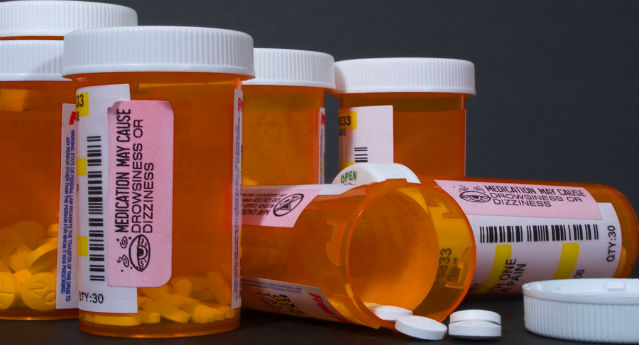Both Codeine and Vicodin are recognized by the U.S. Drug Enforcement Agency as having a current medical use and these narcotics are usually prescribed for pain relief or cough suppression. More on uses for Vicodin here. But what are the relative advantages of each medication?
| Natural | Synthetic | Delivery | Efficacy | Withdrawal | DEA classification |
Codeine Y N oral reliable difficult Schedule II
Vicodin N Y oral reliable easier Schedule III
Natural or synthetic?
Codeine is a naturally occurring opiate. In fact, Codeine is the most widely used, naturally occurring narcotic used for medical treatment in the world. On the other hand, Vicodin is made up of hydrocodone and acetaminophen, and is a semi-synthetic opiate which can be derived from codeine.
Delivery
Both Codeine and Vicodin are taken orally. Codeine comes as a tablet, a capsule, and a solution (liquid). On the other hand, Vicodin is usually taken orally in tablet form. Both types of medication are prescribed to be taken as needed, generally once every 4-6 hours.
Efficacy
Both Vicodin and Codeine are highly effective for acute severe pain relief. However, these pain medications are only moderately effective in treating long-term chronic pain, and their effectiveness can diminish over time. You can speak with your prescribing doctor about the relative merits and dosing for each of these pain medications.
Cost
Generic codeine seems to be the better buy for pain relief. Consumer Reports on opioids recommends that people choose generic versions of opioids over brands names such as Vicodin. In fact, the rating agency suggests generic forms of codeine plus acetaminophen as the Best Buy of opioid medications for its value. Furthermore, high doses or extended release versions of opioid medications can be more expensive than low dose prescriptions. Most low dose prescriptions will cost < $150 per month.
Effects
Opioids like Codeine and Vicodin can produce drowsiness, constipation and, depending on amount taken, can depress breathing. Other possible side effects can include:
- agitation
- depression
- dizziness
- impaired memory
- irregular menstruation
- nausea
- vomiting
Additionally, long-term use of opioids has been linked to:
- decline in immune function
- decrease in sex hormones (testosterone)
- increased sensitivity to pain
- impaired sexual function
- loss of interest in sex
Potential for abuse
Long-term use of opioids such as Vicodin and Codeine can lead to physical dependence and addiction, though they are rarely addictive in people who genuinely need them to control pain and take prescription medications as prescribed. Codeine is classified as a Schedule II narcotic by the DEA. Vicodin is a Schedule III narcotic. This means that U.S. law describes Codeine as having a higher potential for abuse than Vicodin.
If you are worried that you may become addicted to your pain medications, you are not alone. The exact risk of pain pill addiction is not known, but some factors which may increase chances of addiction include past drug or alcohol problems, problem with anxiety, depression or other mental health disorders. This is also true if someone in your family has been diagnosed with substance abuse problems.
Withdrawal
Codeine withdrawal is worse than Vicodin withdrawal. Withdrawal from both Codeine and Vicodin can be painful, but getting the drugs out of your system is not life threatening. People who have withdrawn from both Vicodin and Codeine report that Codeine withdrawal is more severe and painful and that Vicodin detox, by comparison, is easier and quicker. Opiate withdrawal is best when completed under the supervision of a medical professional, because additional medications or interventions may help related symptoms.









Related Posts